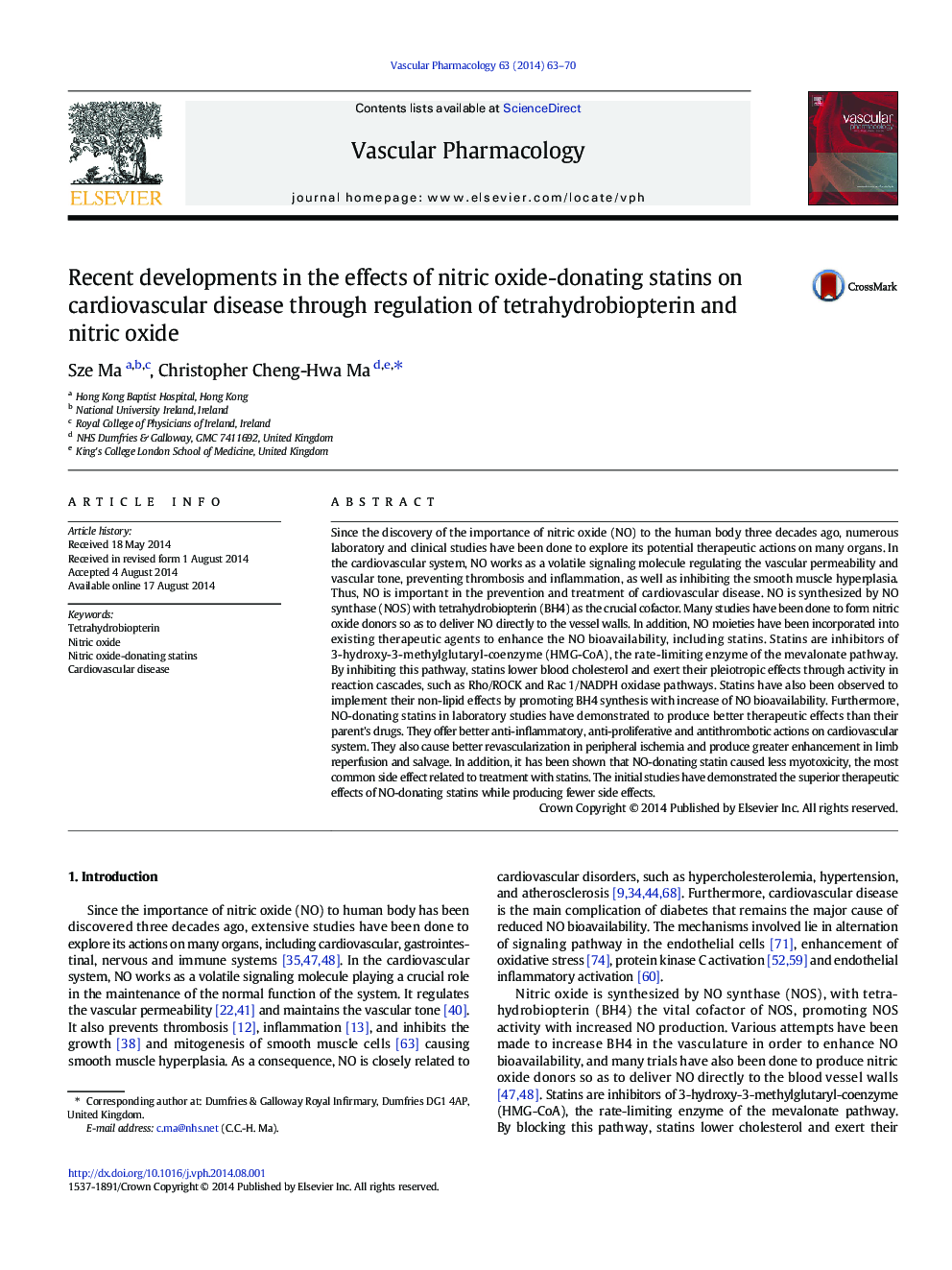| کد مقاله | کد نشریه | سال انتشار | مقاله انگلیسی | نسخه تمام متن |
|---|---|---|---|---|
| 2574178 | 1129666 | 2014 | 8 صفحه PDF | دانلود رایگان |
Since the discovery of the importance of nitric oxide (NO) to the human body three decades ago, numerous laboratory and clinical studies have been done to explore its potential therapeutic actions on many organs. In the cardiovascular system, NO works as a volatile signaling molecule regulating the vascular permeability and vascular tone, preventing thrombosis and inflammation, as well as inhibiting the smooth muscle hyperplasia. Thus, NO is important in the prevention and treatment of cardiovascular disease. NO is synthesized by NO synthase (NOS) with tetrahydrobiopterin (BH4) as the crucial cofactor. Many studies have been done to form nitric oxide donors so as to deliver NO directly to the vessel walls. In addition, NO moieties have been incorporated into existing therapeutic agents to enhance the NO bioavailability, including statins. Statins are inhibitors of 3-hydroxy-3-methylglutaryl-coenzyme (HMG-CoA), the rate-limiting enzyme of the mevalonate pathway. By inhibiting this pathway, statins lower blood cholesterol and exert their pleiotropic effects through activity in reaction cascades, such as Rho/ROCK and Rac 1/NADPH oxidase pathways. Statins have also been observed to implement their non-lipid effects by promoting BH4 synthesis with increase of NO bioavailability. Furthermore, NO-donating statins in laboratory studies have demonstrated to produce better therapeutic effects than their parent's drugs. They offer better anti-inflammatory, anti-proliferative and antithrombotic actions on cardiovascular system. They also cause better revascularization in peripheral ischemia and produce greater enhancement in limb reperfusion and salvage. In addition, it has been shown that NO-donating statin caused less myotoxicity, the most common side effect related to treatment with statins. The initial studies have demonstrated the superior therapeutic effects of NO-donating statins while producing fewer side effects.
Figure optionsDownload high-quality image (76 K)Download as PowerPoint slide
Journal: Vascular Pharmacology - Volume 63, Issue 2, November 2014, Pages 63–70
